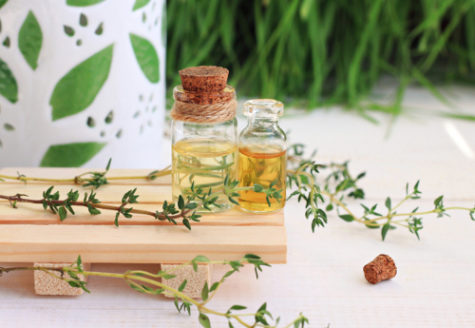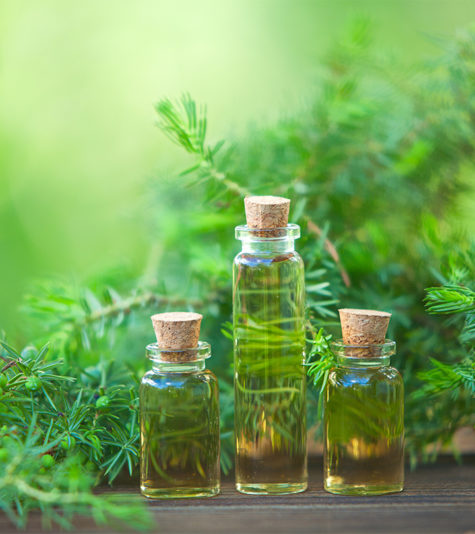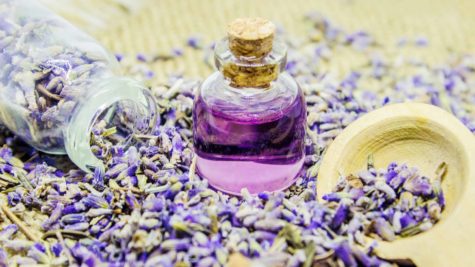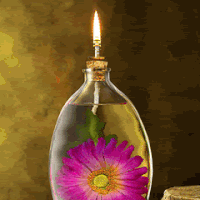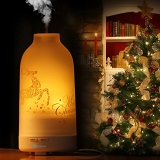Antibiotic
Thyme Essential Oil
There are many types of thyme, some of which can be used safely in all situations and some which cannot. Thyme oil ranks high on the versatility index of essential oils. Diffused, it boosts wellness, fortifying the lungs and clearing the breath.
Thyme has notable antiviral, antibiotic, antiseptic, and diuretic properties and should be used with great care.
- Application:
Thyme oil should never be used undiluted on the skin. It can be applied topically at very low dilutions of 1% or less or used in a blend as a compress. It may also be used in direct inhalation or diffused. Add to food or soy / rice milk as a dietary supplement or flavoring.
- Fragrant Influence:
It may be beneficial in helping to overcome fatigue and exhaustion after illness.
- Safety Data:
Overuse of Thyme essential oil can stimulate the thyroid gland and lymphatic system. Like many good things, it must be used in moderation. It should never be applied to the skin undiluted and should not be used on children unless it is within the chemotype Thyme linalol. It can be irritating for the mucus membranes and it should not be used by those who are pregnant.
Thyme is a vital component of the Basic Care Kit because of its powerful antiviral properties. When flu is around it is a wonderful oil to have on the diffuser. It assists in the elimination of toxic wastes from the body. It is used in the treatment of a wide range of conditions including whooping cough, warts, rheumatism, neuralgia, fatigue, and acne.
Inhaled, Thyme oil is uplifting and relieves depression, stimulates the respiratory system and relieves the spasm of asthma, is an antiseptic for all sorts of muccoid conditions, kills bacteria in the air, and is used for bronchitis or pneumonia. Thyme oil is also mildly sedating and can be used for insomnia.
Internal dose is three to five drops in honey water three times a day.
It is also extremely useful in antiseptic powders, hair and skin care regimes, and cooking. Just to make it a perfect all-rounder, thyme will discourage all manner of parasites and insects from invading your home.
In Greek, “thymos” means “to perfume”; one of thyme’s many traditional uses was in fumigation. Ancient Egyptians used thyme oil for embalming. In many ancient cultures, it was believed that thyme instilled the virtues of strength, energy, and bravery.
Variations
There are six different chemotypes of T. vulgaris:
- Thymol – low altitude close to the sea
- Carvacrol – low altitude close to the sea
- Linalool – in the sun on exposed slopes
- Geraniol – rare and mixed with linalool at high altitudes
- Thuyan-4-ol – very rare and located between thymol/carvacrol and linalool
- α-terpinyl – in the Eastern Mediterranean
Thyme Linalol is especially recommended to kill bacteria and relieve discomfort. It is non-irritating and gentle, and especially recommended for treating children and the elderly or infirm.
Thyme Thuyanol is quite new. It captures much of the overall strength and stimulating properties of the “regular” essence of Thyme as well as its anti-infectious properties. The difference lies in the much higher content of highly desirable terpene alcohols (non-toxic) and the much lower content of irritant and slightly toxic phenols. This oil is stronglhy germicidal (yet non-irritant) and a very good liver stimulant.
Information collected from various sources
Tea Tree Essential Oil
The Aborigines have been using this indigenous Australian tree in their medications for centuries and today tea tree is the subject of a great deal of international research. Highly regarded as an antimicrobial and antiseptic essential oil. It has high levels of terpinenol, which is the key active constituent.
- Application:
Diffuse or apply topically. Safe for use on children and pets.
- Fragrant Influence:
Promotes cleansing and purity.
- Safety Data:
If pregnant or under a doctor’s care, consult your physician. Repeated use can possibly result in contact sensitization. Tea tree oil should not be ingested in large amounts due to its toxicity and may cause skin irritation if used topically in high concentrations.
Its impressive antiviral, antibacterial, and antifungal properties make it useful in a wide range of conditions. It is used in the treatment of candida and all sorts of infections, for ringworm, sunburn, acne, athlete’s foot, toothache, and pyorrhea, among other things.
Tea Tree oil is steam-distilled from a particular type of Australian tree, Melaleuca alternifolia. Tea Tree oil was introduced it to the Western world via Captain Cook in 1770. This is one oil that most definitely will get lots of use in your medicine chest and should positively be part of the home first-aid kit.
It is used externally on deep wounds, road burns to dislodge dirt and bacteria, cuts, scratches, abrasions, sunburn, insect bites, any sort of pruritis (generalized itching of the sensory nerve endings), burns and scalds, herpes lesions, ringworm, lice and tick bites, eczema and psoriasis, thrush, candidiasis, head and pubic lice, athlete’s foot, fungal infections, treatment of staph sores, boils, pimples, acne, halitosis, stinky feet, sinus congestion, etc…
Very sensitive skin, or skin in sensitive areas may need the oil diluted, but generally this is used “neat.”
The scent is strong, clean, and powerful – maybe too powerful. Even though it cures “hot spots” on pets due to skin disease and fungus, some pets hate the scent and will run the moment the bottle is opened.
Tea Tree oil is 4 to 5 times stronger than household antiseptic. Its bacterial action is increased where blood or pus is present. Externally used on deep wounds and cuts it will remove necrotic tissue and leave a healthy surface.
Tea Tree is a powerful killer of all sorts of bacteria. It is non-caustic to the skin, non-toxic to the body, ti produces no negative side effects, it is a natural solvent (may dissolve some plastics(, it has strong cleaning capabilities, it has a well-balanced pH level, it is mildly anesthetic and very aromatic.
The oil is best applied externally but can be taken internally (with care and in very small amounts). Inhaled, it cleanses the air and purifies the respiratory system and so is useful for disease of the respiratory system.
Collected from various sources
Lavender Essential Oil
Lavender oil is a natural antibiotic, antiseptic, antidepressant, sedative, and detoxifier which promotes healing and prevents scarring, and also stimulates the immune system and contributes to the healing process by stimulating the cells of a wound to regenerate more quickly.
- Application:
Diffuse or apply topically. Has a wide range of uses. Apply where you would use a deodorant. Safe for use on small children. May also be added to food or soy/rice mil as a dietary supplement.
- Fragrant Influence:
Calming, relaxing, and balancing, both physically and emotionally.
- Safety Data:
If pregnant or under a doctor’s care, consult physician.
Lavender is capable of many important jobs and is a delight to use. Every home should have a bottle of lavender, if no other oil, because it is so very effective in the treatment of burns and scalds. Lavender is beneficial for cleansing cuts and wounds and is ideal for skin care, since it prevents the build up of excess sebum, a skin oil that bacteria feed on. Lavender has also been clinically evaluated for its relaxing effects.
Although not known specifically as a circulatory stimulant, lavender oil certainly seems to allay the effects of clinical shock and as a mood tonic and antidepressant it helps to deal with the psychological shock of injury.
The French scientist Rene Gatefosse was the first to discover lavender’s ability to promote tissue regeneration and speed wound healing when he severely burned his arm in a laboratory accident. Today, lavender is one of the few essential oils to still be listed in the British Pharmacopoeia.
It also has a multitude of other qualities which make it a truly indispensable oil. This is one of the oils that should be on your number one list – and particularly of use in a first aid kit and for children and pets. It is good for camping because it repels fleas and flying creatures like mosquitoes.
Collected from various sources
